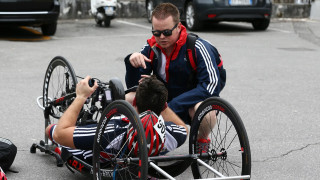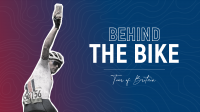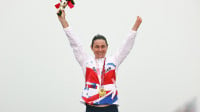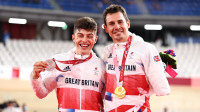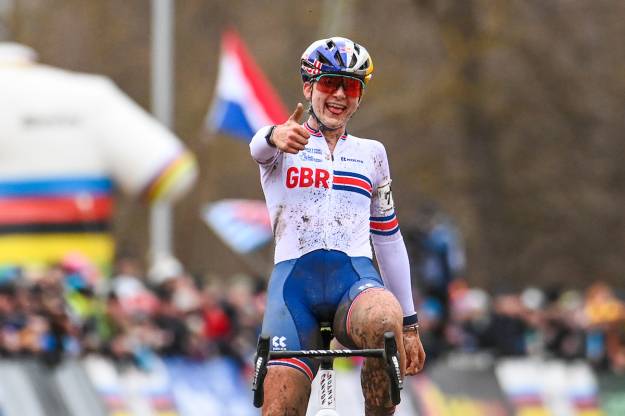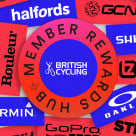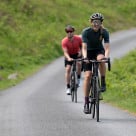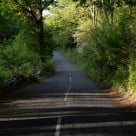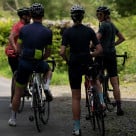Tom Hodgkinson is a Paralympic Development Coach for the Great Britain Cycling Team. We speak to Tom about his journey through coaching and find out how he is preparing for the 2016 Paralympic Games in Rio.
How did you get into coaching?
When I was 14-15 I volunteered for the school sport partnership in my local area, where we were given access to coaching courses in return for our volunteering hours. From there I got to volunteer with a group of young people at the 2004 Athens Olympic Games. It was there I first got a glimpse of track cycling, watching Great Britain versus Australia in the team pursuit and match sprint finals.
After this I attended university whilst also volunteering in British Cycling’s Go-Ride team. When I left university with my coaching degree I was offered the job as Go-Ride Coach for Manchester, before moving on to become a Paralympic Development Coach.
What does your current role involve?
My role is very varied; I work with volunteer groups, charities and associations to identify the next generation of Paralympic stars. I deliver development camps for those riders we feel may have the potential to medal at Tokyo 2020 and beyond.
The main focus of my role now is to support riders at the Rio Paralympic Games, which is a great honour. This involves physiological testing, delivering remote session support through Training Peaks, analysing data files and working with the wider Great Britain Cycling Team support network. There are, of course, a few other special project areas which are top secret for the Games!
What will riders be doing to prepare for the Paralympics?
The riders I work with had a really good winter, all working on their endurance training and individual areas for improvement. The course in Rio will be really flat and not technical: a dream power/drag course for a time trial. The winner will be the one who can achieve the best combination of power and aerodynamic position.
The preparation will be about limiting the resistive forces of the wind, achieving the highest sustainable power for the duration of the event, being acclimatised for humidity above 80% and being prepared mentally for the increase in distractions that a Paralympics could bring.
How do you keep unselected riders motivated?
Every rider is super motivated. They have been committed to the Paralympic Games for a significant part of their lives and from my conversations it hasn’t taken much talking with riders for them to stay committed to what they want to achieve. I think the main area has been disappointment at not being selected, wishing the other riders well but also looking forward to the opportunity that 2017 creates. There is always an opportunity to take a big win in the year following the Games and start the next Paralympic cycle at the front.
In May the team competed at the UCI Para-cycling Road World Cup in Belgium; this must have been great preparation.
The racing in Belgium was great. We specifically stayed in a hotel which was being used by other nations to best replicate the feel of a multi-sport environment. This gave riders who have not competed in a Paralympics the experience of staying with the host organisation, seeing their closest rivals on a daily basis and fuelling themselves on buffet style food - all elements they will face in Rio.
The racing itself went very well, with good results across the disciplines from solo bikes, tandems, trikes to handbikes. We have a wide variety of athletes in different classes that can perform really well.
During the Paralympics what kind of training will the riders be doing?
Some riders have one event to focus on and some could be racing in up to four events over a two-week period; each rider will have their own individual plan. During the Games riders will be executing the plans they have developed with their coaches. They will be focused on removing the negative training fatigue of the previous months to produce the best performance they can for their main event or over multiple days of competition.
How is your Portuguese?
Eu ainda estou trabalhando no meu Português . Existe um aplicativo para iPhone para isso.
Sounds like Tom will be using his translation app a lot over in Rio!
What would be a successful outcome for you?
A successful outcome is athlete feedback that we were well prepared, understood the demands of the event and delivered the rider to the performance they are proud of on the day.
Send your good luck message to the team
We are asking cyclists, members and fans to contribute their good luck messages for our Olympic and Paralympic stars.
These messages will be printed on a custom-made Union Jack, which will then accompany our riders to their holding camps and then on to Rio.
For your chance to get on the flag, simply share your message on Twitter or Facebook with the hashtag #BestofBritish

